Gérard Vandenberg
出生 : 1932-03-10, Amsterdam, Netherlands
死亡 : 1999-01-16

Director of Photography
An American historian (Mr Webster) comes to Berlin to visit an old man who claims to be the real Adolf Hitler and to be 103 years old. The Hitler who died in 1945, the old man says, was just one of his six doubles - one for each weekday - while Hitler himself retired into a bunker below the S-Bahn tracks and married a second time.

Director of Photography
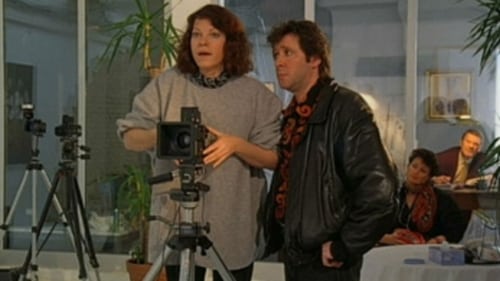
Director of Photography
Henriette, the buoyant wife of a politician leaves her ambitious husband in the middle of an election campaign and begins a new life. The fact that, as the still legally married wife of a public figure, she takes a job as a model for lingerie just can't go well.

Director of Photography
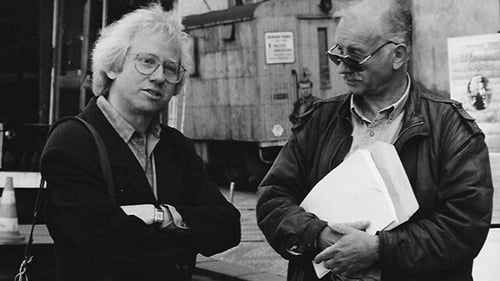
Director of Photography
Hugh Whitemore adapted Bruce Chatwin's novel for this tale of a New York antique dealer who travels to Prague to buy the porcelain collection of the late Baron Utz, only to become embroiled in the wreckage of the dead man's unusual life history after he discovers that the collection is missing.
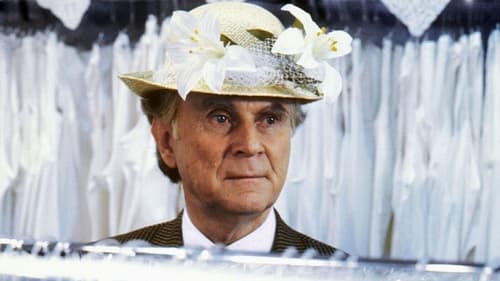
Cinematography
After ordering enough typewriting paper for 40 years, just to get discount, Heinrich Lohse is forced to retire.

Cinematography

Camera Operator
Ulrich Mühe plays a German businessman who was born completely without scruples. This makes him an eminently suitable candidate for success in the chaotic years after World War I. The shameless man's story is contrasted with that of his polar opposite, a Jewish anarchist.

Cinematography
With the dangerous smoothness of a tiger stalking his prey, Peter has circled the au pair Michèle. She quickly succumbs to his fascinating charisma and experiences for the first time a hitherto unknown, tender security. "I'll kill you," says Peter, as gently as cold-bloodedly. A macabre joke or a serious warning?

Director of Photography
The film presents the political events surrounding the Anschluss in March of 1938 through the lives of Carola Hell, a popular young actress at the prestigious Theater in der Josefstadt, and Martin Hofmann, the Jewish journalist she plans to marry. When we encounter the couple in the lovely springtime weather their future is full of promise. They are determined to stay clear of politics. Yet in the climate of the time, nobody of her prominence or his religion can remain apolitical. Although Martin's journalist friend, Drechsler, calls to inform them that the Nazis plan to take over Austria soon, they concentrate on their work and their private happiness and dismiss the warnings.

Cinematography

Cinematography

Cinematography

Cinematography
A singer and a mysterious foreigner plan an abduction.

Cinematography
German film.

Cinematography
Film by Christian Ziewer.

Cinematography

Cinematography
A married couple of artists move to a utopian town known for its absolute freedom, but behind the surface perversion and violence are spreading.

Director of Photography
A young textile worker attempts to reunite with his love and is shot by border guards. A semi-documentarian movie with a strong pacifist message.

Cinematography
Two surveyors come under the spell of the beautiful Vampira. Vampira then celebrates occult magic rites with her new companions in her castle with the Alder Queen Belladonna, a sorceress, a hunchback, and a werewolf.

Cinematography
The lord of the castle is found shot. His sister takes care of the appropriate wake, a firearm-happy guest from Spain romps around in the walls. An Italian listens to records of Bartók. The police doesn't appear.

Writer
The lord of the castle is found shot. His sister takes care of the appropriate wake, a firearm-happy guest from Spain romps around in the walls. An Italian listens to records of Bartók. The police doesn't appear.
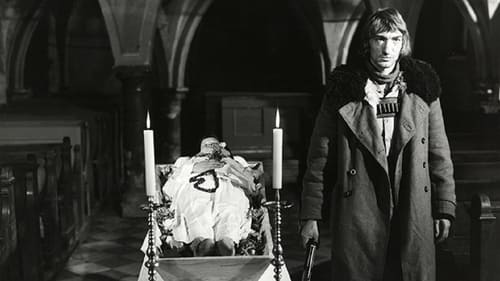
Director of Photography
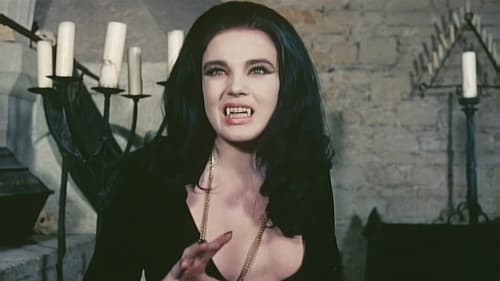
Director of Photography
An American actress inherits a castle in Transylvania. What she doesn't know is that her ancestor, the Baroness Catali, was in actuality a vampire countess, and emerges from her tomb to ravage the nearby village and Catholic seminary.

Co-Director
Men and women meet by chance, as it seems. They have played this game before.

Cinematography
A wacky coup d'etat masterminded by a Russian call girl, in of all places, staid Switzerland, is the subject of Daniel Schmid's black humorous satire on power and its misuses.
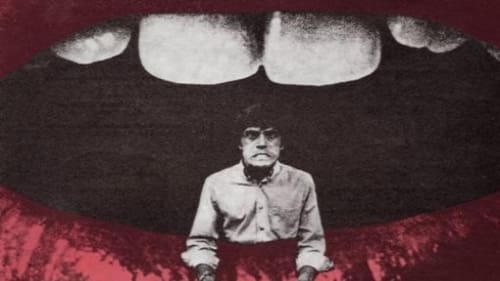
Director of Photography
I’m an Elephant, Madame ( Ich bin ein Elefant, Madame) follows a class of high school students in 1968 Bremen during their last year at school, their lessons, their protests, their private life. Focuses in particular on the troublemaker & provocateur Rull who in his apolitical chaotic way takes on both the authoritarian school administration and the leftist protesters.

Cinematography
Munich, 1968: a period of liberation, student revolts, state repression. Amidst the restlessness, chemistry student Robbie meets the Irish cello player Nancy. They feel compelled to pursue a passion in spite of their careers. But does romantic love have a place in such convoluted, contesting times?

Cinematography
This film takes a decidedly satirical look at the inner workings of the gangster underworld. Alfred Lowell is a washed-up actor sent to London to take care of some mob business. Alfred's mind is not on his job, as he prefers to probe his past for the reasons why he has failed as a thespian. He entertains thoughts of suicide, but his involvement in the gang prevents him from ending his life.

Cinematography
The drifter has a name - Lenny Jacobsen" - An outsider is chased to his death. The case remains uncertain, while what otherwise interests at best incidentally, the sensitivities of the victims and the perpetrators, to seemingly trivial expressions, gestures, sentences becomes the main thing.

Cinematography
Television film.

Cinematography
ZERO IN THE UNIVERSE is a comedy, a cryptogram–a message in code to the viewer. Who is Zero? What universe? What is the opposition of Zero and his arch enemy, Steinmetz? What does it come from, and where, if anywhere, does it go. The film presents abundant clues, but the answers are never stated. –J. L.

Cinematography
Manfred and Hilke live a live perfectly complied with each other in West Berlin. They managed to elude from the bourgeois conformity, which they loath. But when Hilke finds out about her pregnancy she estranges from her partner. Trying to keep her former life as it was, she desperately looks all over the city to get an abortion.
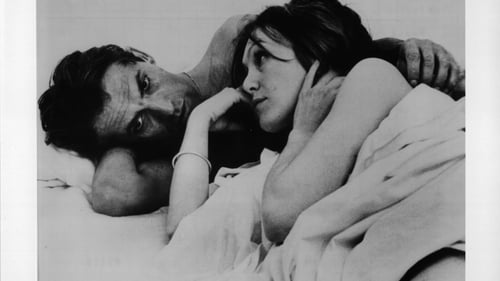
Director of Photography

Director of Photography

Cinematography
In The Dam, although it is an experimental film, Kristl eschews the necessary earnestness in addressing his subject. The manufactured, unambiguously humorless profundity proffered up by other German contemporaries is absent here. Laughter is allowed. Kristl takes the dreadful liberty of tomfoolery, sending up himself, the characters, the action, "tragedy," and everything else, including the audience, that might be held sacred. Within the framework of the action, we recognize a love triangle, one of the simplest of dramatic configurations. Not only the basic idea, but also numerous particulars, both in subject and style, are reminiscent of the films of Roman Polanski, which Kristl doubtless saw and holds in esteem. We meet two men: one is meant to embody the outsider, the artistic, intellectual, individualist. The other looks like the embodiment of the well-to-do man, the burgher, the functionary, the capitalist. The two battle for the favor of an indecisive and domineering girl.

Cinematography
Pietro is a thirteen-year-old shepherd boy who lives in the sixties in Cappadocia, an isolated village in the mountains of Abruzzo where life has kept the same rhythms as always. His uncle emigrated to Venezuela and has promised him that he will send him the necessary documents so that he too can emigrate. Meanwhile Pietro wants to learn English and his grandfather, who wants to help him realize his dream, discovers in the newspaper how Pietro can study a foreign language even without a teacher. But not all the inhabitants of the country are so open to the future...





















